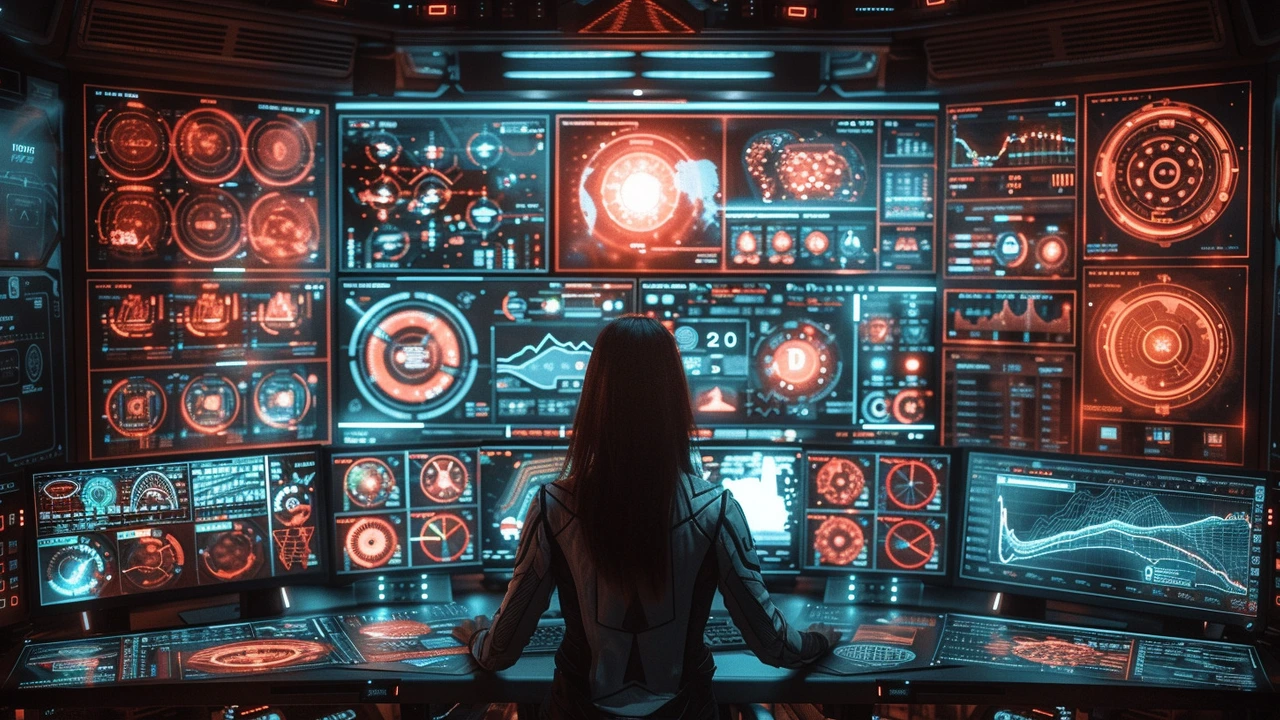
ChatGPT: Propaganda's Kryptonite
Allow me to introduce you to an exceptionally potent tool in our quest to debunk propaganda: ChatGPT. Anyone who's ever been interested in artificial intelligence, or has lost a game of chess against their phone, will have heard about GPT-3. It's the most powerful language model ever created, a product of OpenAI, a research lab famous for pushing the boundaries of what AI can do.
Recently, the AI researcher community has been buzzing, not about the latest cat video on the internet, but with the promise of ChatGPT. This cutting-edge technology deciphers propaganda, rumors, and misinformation using machine learning algorithms. It takes propaganda decoding to an entirely new level, far surpassing what we humans can accomplish with our limited hours in the day, not to mention only two cups of coffee. But don't worry my dear fellow humans, we still have our place. Robots can't pet my bunny Sprite or appreciate sunsets.
Although they're trying to program AI to mimic human intelligence, you've got to wonder if they could ever replicate the unique quirks that make us, well, us. Can you imagine, an AI knocking over a full cup of tea over its keyboard in a middle of a critical decoding operation? Or forgetting to reply to an urgent message while it's busy scrolling through dog memes? I can't. But, with ChatGPT, they're certainly trying to get close.
Unwrapping the Future: Under the Hood of ChatGPT
Now, for the uninitiated, ChatGPT sounds like some alien life form or a new video game that your kids can't stop talking about. It's not that, but it is kind of out of this world. ChatGPT uses an advanced deep learning model known as a transformer. This isn't just your everyday graduate student stuffing their brains with books and caffeine, but a system that imbibes vast amounts of data from the internet, learning the patterns, the language nuances, understanding, and coding complex information.
Think of it like a very determined detective, solving a complicated crime scene with thousands of potential clues. Except ChatGPT isn't trying to figure out who took the last cookie; it works to decode information, particular propaganda, and help us shine a light in this post-truth world. It's a bit like Batman, except instead of a bat, it's an algorithm, and instead of Gotham, it's the Internet. Imagine that.
OpenAI's New Superhero on the Block
OpenAI's previous version, GPT-2, was by itself impressive, like a first runner-up contestant in The Voice. But GPT-3, whence ChatGPT derives its capabilities, is the Troy Bolton of AI - a star player in its league. ChatGPT can understand, generate and translate text, summarize documents, answer trivia questions, and more. It's more versatile than a Swiss army knife and smarter than your Uncle Bob who claims to know everything.
No wonder it's making such waves in the community. We'd be talking about the latest episode of The Bachelor, but no, we're here discussing a machine learning model. That's how potent this technology is. And unlike The Bachelor, it's here to stay.
The Propaganda Decoder Ring
This is where ChatGPT earns its superhero cape. Propaganda has never been as rampant as it is in our current digital age. The scary part is that it's not always obvious, like the villain twirling his mustache in a cartoon. It's more like a chameleon, blending seamlessly into our feeds, subscriptions, and inboxes.
ChatGPT, essentially, goes all Sherlock Holmes on a propaganda piece, breaking down elements, and giving a surefire way of knowing whether it's propaganda or not. It's like having a decoder ring from a comic book, except this one is powered by super-advanced AI. It isn't just helpful for techies or news junkies, but for everyday folks like us who occasionally want to fact check that explosive news tidbit Aunt Marianne shared in the family group chat. Who knew machines could be our weapon against fake news?
Embracing AI: The Future Looks Bright
As I sip from my "I <3 AI" mug, I can't help but marvel at how far we've come from the humble beginnings of AI. It's no longer about creating sentient beings, like a certain Iron Man troop AI would love us to believe. It’s about assistance, accuracy, and aversion to false narratives, particularly in situations where we humans may be deceived.
ChatGPT, though still not perfect and at times hilariously misinterpreting sentences, a reminder of that friend who constantly gets your sarcastic remarks wrong, shows great promise. With each version, it gets better, smoother, and one step closer to becoming a generally intelligent system.
So, do we embrace it, or do we run away? In truth, even if we wanted to run away, it's hard. ChatGPT is already here, helping flag potential propaganda avenues, allowing us to breathe a little easier in the era of fake news. But it's more than that. It's about letting go of fear, embracing change and harnessing the power of AI to create a more informed and intelligent society. After all, who doesn't want a super-smart, super-cool decoder ring?
And as I close, with my bunny Sprite hopping around happily, oblivious to the AI revolution happening right around it, I can't help but smile. The future of propaganda decoding is here, and it’s not as intimidating or Orwellian as we once feared. It's just another tool, another step forward in our ongoing journey towards a more unbiased, objective exploration of the world of information around us.
- Categories
- Digital Marketing (26)
- Artificial Intelligence and Technology (6)
- Business and Marketing (6)
- Social Media Marketing (6)
- Digital Marketing & SEO (5)
- Technology (5)
- Artificial Intelligence and Social Media Marketing (3)
- Artificial Intelligence and Marketing (3)
- Digital Marketing Strategy (3)
- Social Media Tips (3)